
General elections were held in the Netherlands on 3 July 1918. They were the first elections held after a series of reforms that introduced universal male suffrage and pure proportional representation, replacing the previous system using first-past-the-post voting in single member constituencies. This change was known as the Great Pacification, which also included the introduction of state financing of religious schools, and led to the start of consociational democracy.

General elections were held in the Netherlands on 5 July 1922. They were the first elections held under universal suffrage, which became reality after the acceptance of a proposal by Henri Marchant in 1919 that gave women full voting rights. Almost all major parties had a woman elected. The number of female representatives increased from one to seven. Only the Anti-Revolutionary Party principally excluded women from the House of Representatives. Another amendment to the electoral law increased the electoral threshold from 0.5% to 0.75%, after six parties had won seats with less than 0.75% of the vote in the previous elections.
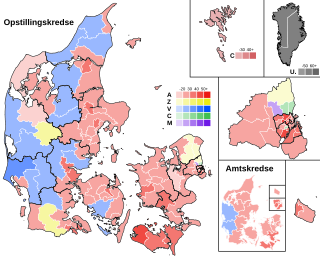
General elections were held in Denmark on 4 December 1973 and in the Faroe Islands on 13 December. It has since been referred to as the Landslide Election, as five new or previously unrepresented parties won seats, and more than half the members of the parliament were replaced. The Social Democratic Party, which had led a minority government until this election, lost a third of their seats. After the election Poul Hartling, the leader of the liberal Venstre, formed the smallest minority government in Denmark's history with only 22 seats, supported by the Progress Party, the Conservative People's Party, the Social Liberal Party, the Centre Democrats and the Christian People's Party.

Federal elections were held in Germany on 14 September 1930. Despite losing ten seats, the Social Democratic Party of Germany (SPD) remained the largest party in the Reichstag, winning 143 of the 577 seats, while the Nazi Party (NSDAP) dramatically increased its number of seats from 12 to 107. The Communists also increased their parliamentary representation, gaining 23 seats and becoming the third-largest party in the Reichstag.

General elections were held in Sweden on 16 September 1979. Although the Swedish Social Democratic Party remained the largest party, winning 154 of the 349 seats in the Riksdag, the liberal interim government of Ola Ullsten was succeeded by another centre-right coalition government composed of the People's Party, the Moderate Party and the Centre Party, led by Centre Party leader Thorbjörn Fälldin. The three parties together won 175 seats, compared to the 174 won by the Social Democrats and Communists. It was the only time that non-socialist parties retained power in an election between 1928 and 2010. The Moderates dramatically increased their representation in the Riksdag, becoming the largest party of the non-socialist bloc, a position they maintained until 2022.
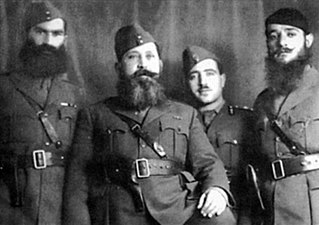
Parliamentary elections were held in Greece on 31 March 1946. The result was a victory for the United Alignment of Nationalists, an alliance that included the People's Party, the National Liberal Party, and the Reform Party, which won 206 of the 354 seats in Parliament. As a result, Konstantinos Tsaldaris became Prime Minister leading a right-wing coalition. Nonetheless, he soon decided to resign in favor of Themistoklis Sophoulis, who led a government of national unity during the entire second phase of the civil war (1946–1949). One of the priorities of the new government was the proclamation of a plebiscite for the restoration of the Greek monarchy.
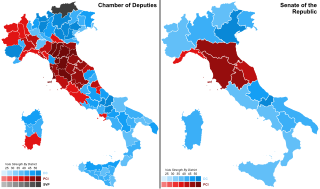
The 1976 Italian general election was held in Italy on 20 June 1976. It was the first election after the voting age was lowered to 18.
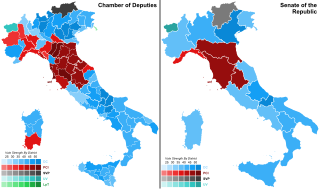
The 1979 Italian general election was held in Italy on 3 June 1979. This election was called just a week before the European vote: the failure to hold the two elections at the same time caused much criticism for wasting public money.
General elections were held in Luxembourg on 21 October 1945. They were the first elections held after the German occupation during World War II. As a result of the war, the political alliances of the interwar period had been ended. In their place were new parties; the Christian Social People's Party, the Luxembourg Socialist Workers' Party, and the Patriotic and Democratic Group in place of the Party of the Right, Socialist Party, and Radical Liberal Party respectively. It is regarded as a realigning election, as the election established the party political order, with four established parties, that would be maintained until 1974.

General elections were held in Italy on Sunday 2 and also on Monday 3 June 1946. They were the first after World War II and elected 556 deputies to the Constituent Assembly. Theoretically, a total of 573 deputies were to be elected, but the election did not take place in the Julian March and in South Tyrol, which were under military occupation by the United Nations.

General elections were held in Belgium on 11 April 1954. The dominant Christian Social Party won 95 of the 212 seats in the Chamber of Representatives and 49 of the 106 seats in the Senate. Voter turnout was 93.2%. Elections for the nine provincial councils were also held.

General elections were held in Belgium on 1 June 1958. The result was a victory for the Christian Social Party, which won 104 of the 212 seats in the Chamber of Representatives and 53 of the 106 seats in the Senate. Voter turnout was 93.6% in the Chamber election and 93.7% in the Senate election. Elections for the nine provincial councils were also held.

General elections were held in Belgium on 26 March 1961. The result was a victory for the Christian Social Party, which won 96 of the 212 seats in the Chamber of Representatives and 47 of the 106 seats in the Senate. Voter turnout was 92.3%. Elections for the nine provincial councils were also held.

General elections were held in Belgium on 23 May 1965. The result was a victory for the Christian Social Party, which won 77 of the 212 seats in the Chamber of Representatives and 44 of the 106 seats in the Senate. Voter turnout was 91.6%. Elections for the nine provincial councils were also held.

Parliamentary elections were held in Hungary on 25 March 1990, with a second round of voting taking place in all but five single member constituencies on 8 April. They were the first completely free and competitive elections to be held in the country since 1945, and only the second completely free elections with universal suffrage in the country's history. The conservative, nationalist Hungarian Democratic Forum (MDF) beat the liberal and more internationalist Alliance of Free Democrats, which had spearheaded opposition to Communist rule in 1989, to become the largest party in parliament. The Hungarian Socialist Party, the former Communist party, suffered a crushing defeat, winning only 33 seats for fourth place.
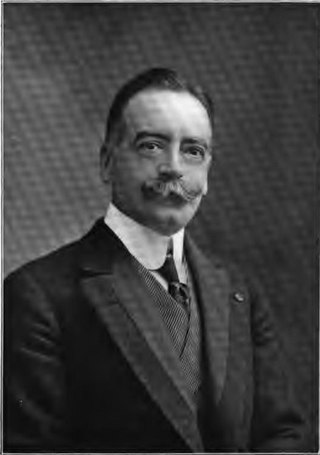
General elections were held in Belgium on 27 November 1932. The Catholic Party won 79 of the 187 seats in the Chamber of Representatives and 42 of the 93 seats in the Senate. Voter turnout was 94.3%.
General elections were held in Italy on 26 October 1913, with a second round of voting on 2 November. The Liberals narrowly retained an absolute majority in the Chamber of Deputies, while the Radical Party emerged as the largest opposition bloc. Both groupings did particularly well in Southern Italy, while the Italian Socialist Party gained eight seats and was the largest party in Emilia-Romagna. However, the election marked the beginning of the decline of Liberal establishment.

Full general elections were held in Belgium on 14 October 1894, with run-off elections held on 21 October 1894.
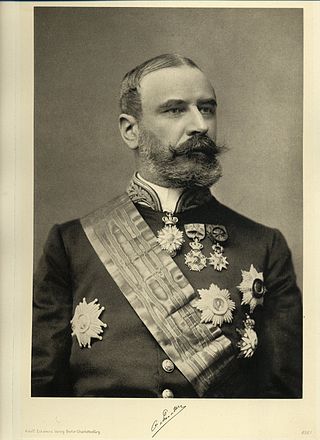
Partial legislative elections were held in Belgium on 22 May 1898, with run-off elections held on 29 May. Under the alternating system, elections for the Chamber of Representatives were held in only four out of the nine provinces: Hainaut, Limburg, Liège and East Flanders. Thus, only 75 seats out of the 152 seats in the Chamber of Representatives were up for election. The Catholic Party retained their absolute majority.

General elections were held in Belgium on 24 May 1936. The result was a victory for the Belgian Labour Party, which won 70 of the 202 seats in the Chamber of Representatives and 39 of the 101 seats in the Senate. Voter turnout was 94.7%.
























